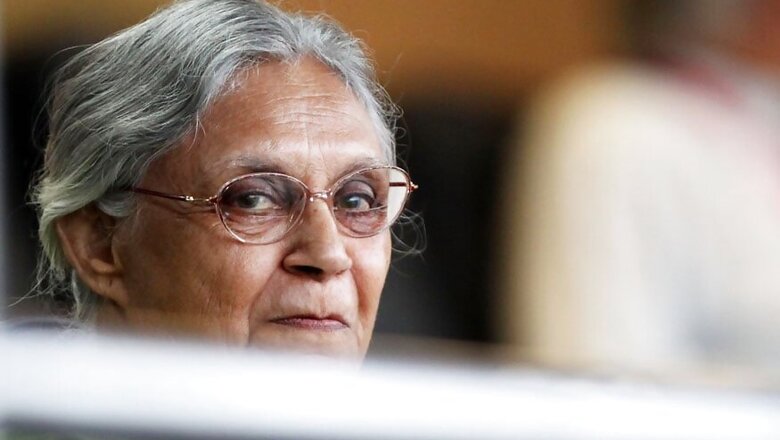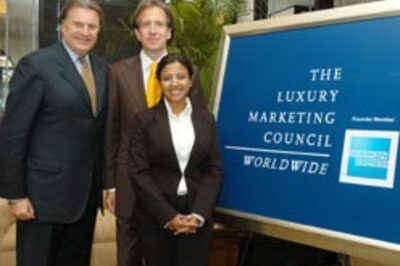
views
The passing away of Sheila Dikshit, the longest-serving chief minister that Delhi has ever had, led to a flood of nostalgia that is unusual in India, where politicians are generally portrayed in negative terms, particularly by the metropolitan elite.
Smt Dikshit was admittedly different from the run-of-the-mill politicians in many ways. For one, she made everybody feel at home. In fact, she completely disarmed you since she came across as ‘one of us’. That her medium of instruction in school and college was English, and that she had been married to a bureaucrat, combined with her innate grace, endeared her not just to her officers, but to Delhi at large.
There were no hard edges lurking beneath the surface that would suddenly emerge to trip you, which was a pleasant surprise to those who expect politicians to have horns hidden beneath their hair.
Much more than pleasantries, she had two qualities that successful leaders have. One, was to empower bureaucrats so they could deliver without constantly having to look over their shoulders. She shielded them from retail, local pulls and pressures. Further, she encouraged them to speak up and express their opinions clearly. The final decision was for her to take but the process to reach it included a fair amount of participation.
Even in day-to-day functioning, one could always speak freely. Where she really scored was in making people feel that they were being heard and that they were part of the process. The result was that they ended up performing better since they owned up to the process, even if the final decision was quite different from what was suggested. Her concept of partnership, or Bhagidari, involved consulting with, and feedback from, members of Resident Welfare Associations, a very broad base that initially worked very well.
The second was that she wanted to improve things and was prepared to take ‘hard’ decisions, wherever required. However, her reforms were calibrated and not taken because of ideological reasons or just because some experts felt so. Delhi’s power sector was on the verge of a collapse when it was privatised; process itself was a step-by-step one with a sufficient transition process that prevented a breakdown.
Otherwise, I found her very cautious and looking for systemic improvements rather than ‘big bang’ announcements that were potentially disruptive. The importance of improvements and of efficiency gains is something that many analysts tend to ignore.
Personally, I have many good memories of working with her, but the one I value the most was her public acknowledgement that while she took a decision on political grounds, she realised that it was not defensible.
The Sheila Dikshit government had wanted to rush through a subsidy program to compensate power consumers against a minor tariff increase, keeping in mind the upcoming Assembly elections. As someone in charge of the public finances of the Delhi government, I was opposed to it, not ideologically but because empirical data did not support the idea of the subsidy.
The Delhi government had commissioned a detailed socio-economic assessment of the city, which showed its rising per capita income, expenditure patterns of the poor and their general satisfaction level with the power scenario. I had gone out of Delhi for a day; in that period the government rushed through its half-baked subsidy scheme. At the next cabinet meeting, to my surprise, Sheila Dikshit looking at me, said that she could do it as I was away. Her power minister added that the CM had asked him to speak to me, but he could not muster up enough courage to do so. For a Chief Minister to so candidly admit that what she did was questionable, was amazing. A truly rare quality.
And yet, her political career came to such a sad end that in the November 2013 elections, she not only lost her own seat by a big margin, but the Congress party could win only eight seats out of 70. A year later, in the mid-term polls to the Delhi Assembly, the Congress was wiped out completely. In the recent parliamentary elections, Sheila Dikshit was fielded from North East Delhi, losing by over 3.6 lakh votes. The BJP not only won all seven seats but led in 65 out of the 70 Assembly segments, leaving the Congress to lead in only five Assembly segments, all minority dominated.
One feels sad for the unfortunate intra-party wrangling of the last few days of her life, where one felt she was being unnecessarily cornered.
Are there any lessons from all this? One, Sheila Dikshit showed that it is possible to be graceful in politics, even in defeat. Two, that stakeholder consultations must be institutionalised through systemic change; else they remain episodic and degenerate into formalism. Three, the poor want to be empowered, and their agency vindicated, and not be seen as inanimate objects of doles.
Sheila Dikshit will be missed, her warmth and lack of airs will be remembered even as the Delhi for which she worked so hard, changed so hugely that she herself could not imagine.
(The author is the Director of the Nehru Memorial Museum and Library. Part of the Indian Administrative Service 1979 batch, he served as joint secretary in Atal Bihari Vajpayee’s PMO and later as principal secretary of finance and power in Sheila Dikshit-led Delhi government. Views are personal)














Comments
0 comment